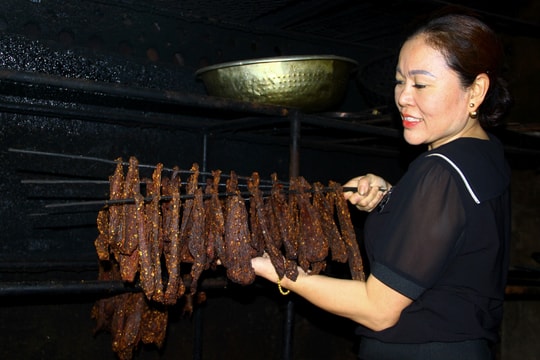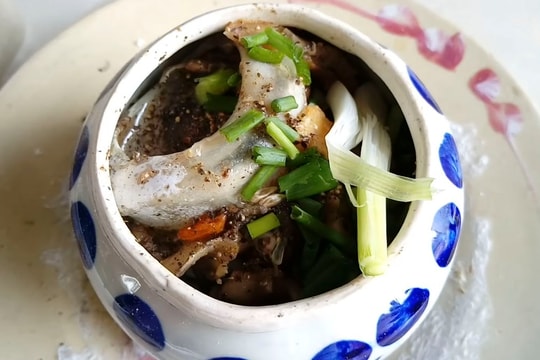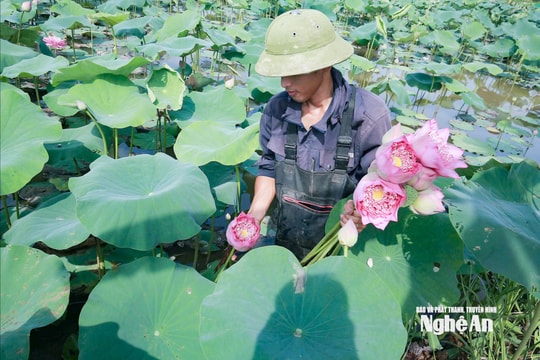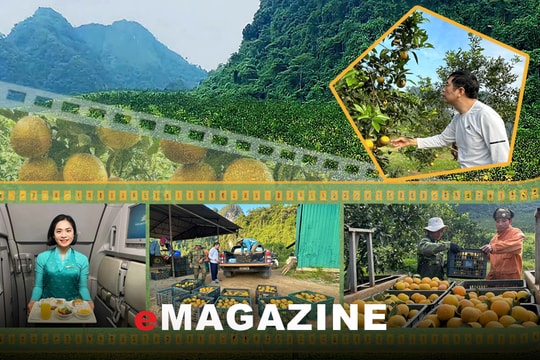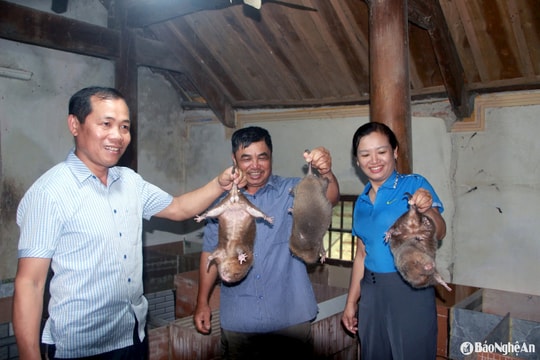Concerns about Thai people 'borrowing names' of Vietnamese specialties
As Vietnam joins the ASEAN economic community, the risk of trademark theft is increasing.
Thai fish sauce exported to the European (EU) and American markets is labeled as Phu Quoc fish sauce. Thai exported vermicelli, pho, dried noodles, etc. are labeled as “Vietnamese's New Noodle” on the packaging.
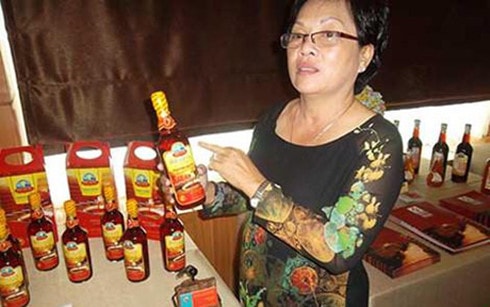 |
| Ms. Nguyen Thi Tinh, Chairwoman of Phu Quoc Fish Sauce Association, introduces geographical indication protected products to customers. (Photo: QH) |
All talk but no action
Branding expert Ly Truong Chien said that during a trip to Japan, he saw a package of Vietnamese dried pho but it was labeled “Made in Thailand”. During his recent trip to Thailand, he also discovered this product being sold at a supermarket. “That shows that the Thai people were quicker than the Vietnamese. They know that Vietnamese pho is famous in the world, so they have exploited and sold this product,” Mr. Chien commented.
Fish sauce produced in Thailand has also “borrowed the name” of Phu Quoc to export abroad. Ms. Nguyen Thi Tinh, President of the Phu Quoc Fish Sauce Association, said that the export volume of Phu Quoc fish sauce to the EU market has increased quite sharply after this product was registered for geographical indication protection in the EU. However, the situation of some Thai and Hong Kong manufacturers using the Phu Quoc fish sauce brand to sell to the EU and other countries still exists.
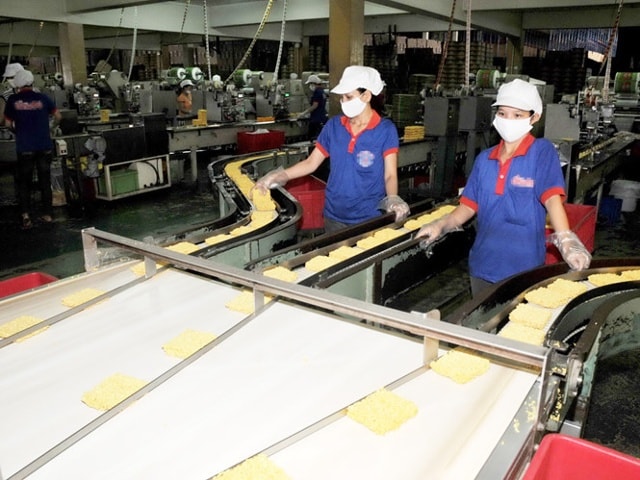 |
| Vietnamese instant noodle and vermicelli products are often "borrowed" by other countries for export. |
“Therefore, Vietnamese authorities need to have reasonable solutions for the EU to strengthen supervision and eliminate products that steal trademarks or imitate Phu Quoc fish sauce. At that time, fish sauce products produced in Thailand and Hong Kong but labeled Phu Quoc will be punished and eliminated by EU countries,” said Ms. Tinh.
Not only fish sauce and pho, but rice products such as vermicelli, noodles, etc. have long been not only the strength of domestic manufacturing enterprises but also consumed strongly by many countries in the world, even fastidious countries such as Japan, the US, France, etc. Sadly, Thai and Chinese enterprises dominate the above markets partly by "borrowing the names" of products with Vietnamese brands or blatantly labeling Vietnamese regional specialties on product packaging.
“Many Vietnamese products are famous both domestically and internationally. However, foreign companies from Thailand and China freely print “Hue beef noodle soup, Sa Dec noodles…” on their packaging. This makes it impossible for consumers around the world to distinguish between foreign and Vietnamese products,” said a representative of a food export company.
Not to mention, according to some enterprises, there is a phenomenon that many Chinese companies, when they want to bring goods to ASEAN markets, they bring them to our country and label them “made in Vietnam”. Then they can easily sell their goods to ASEAN. This is a very alarming situation.
Don't wait until the last minute.
According to some businesses, recently when foreign companies in the ASEAN economic community brought goods into Vietnam to gain market share through supermarket chains, there was a situation where foreign companies used similar names or imitated famous product brands of Vietnamese companies.
"Therefore, if Vietnamese enterprises do not quickly register for trademark protection, there will be a risk of losing their trademark or litigation disputes, especially in the near future when more and more foreign goods will enter Vietnam due to our country's participation in many free trade agreements," warned Mr. Van Duc Muoi, General Director of Vissan Company.
According to lawyer Le Quang Vinh, BROSS & Partners law firm, enterprises not only sell products domestically but also export them abroad. Therefore, registering a trademark for an enterprise domestically is only legally valid domestically, and has no value abroad. Therefore, registering for protection abroad is very necessary. Some Vietnamese enterprises have realized this, such as Trung Nguyen coffee, which exports to 40-50 countries around the world, but they register trademark protection for their products in more than 70 countries.
Many Vietnamese enterprises say they are concerned about high registration costs, but in fact, they do not care or pay attention to protecting their brands. In fact, in addition to the national registration method - that is, submitting a trademark registration application to each country - which costs a lot of money, enterprises can choose international registration to save money. Specifically, enterprises only need to submit one trademark registration application to many countries according to the Madrid Protocol and the Madrid Agreement. This is a tool to protect brands for enterprises in other countries.
“Only by registering trademark protection in export markets will we have a legal basis to sue when there is imitation or counterfeiting,” said lawyer Vinh.
According to VOV
| RELATED NEWS |
|---|

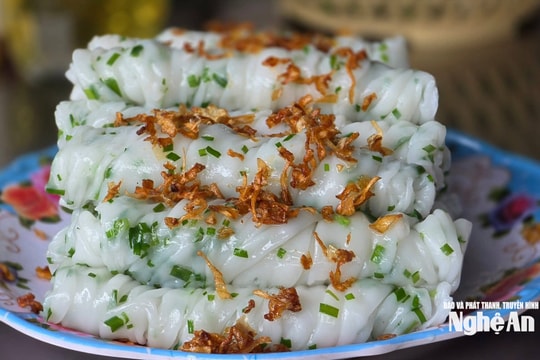
.jpeg)
